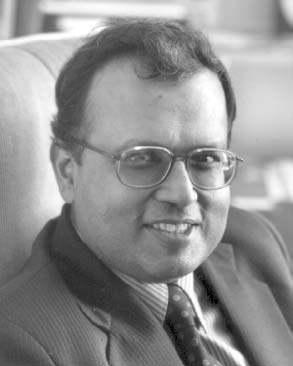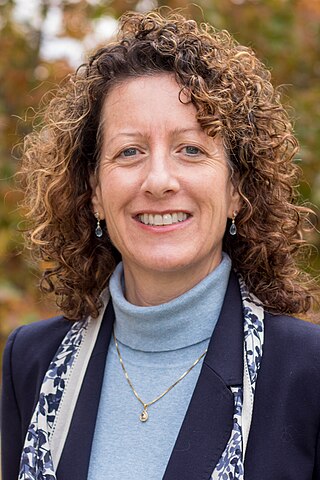Related Research Articles
Outsourcing is a business practice in which companies use external providers to carry out business processes, that would otherwise be handled internally. Outsourcing sometimes involves transferring employees and assets from one firm to another.
An information system (IS) is a formal, sociotechnical, organizational system designed to collect, process, store, and distribute information. From a sociotechnical perspective, information systems comprise four components: task, people, structure, and technology. Information systems can be defined as an integration of components for collection, storage and processing of data, comprising digital products that process data to facilitate decision making and the data being used to provide information and contribute to knowledge.
Offshoring is the relocation of a business process from one country to another—typically an operational process, such as manufacturing, or supporting processes, such as accounting. Usually this refers to a company business, although state governments may also employ offshoring. More recently, technical and administrative services have been offshored.
A virtual team usually refers to a group of individuals who work together from different geographic locations and rely on communication technology such as email, instant messaging, and video or voice conferencing services in order to collaborate. The term can also refer to groups or teams that work together asynchronously or across organizational levels. Powell, Piccoli and Ives (2004) define virtual teams as "groups of geographically, organizationally and/or time dispersed workers brought together by information and telecommunication technologies to accomplish one or more organizational tasks." As documented by Gibson (2020), virtual teams grew in importance and number during 2000-2020, particularly in light of the 2020 Covid-19 pandemic which forced many workers to collaborate remotely with each other as they worked from home.
A strategic partnership is a relationship between two commercial enterprises, usually formalized by one or more business contracts. A strategic partnership will usually fall short of a legal partnership entity, agency, or corporate affiliate relationship. Strategic partnerships can take on various forms from shake hand agreements, contractual cooperation's all the way to equity alliances, either the formation of a joint venture or cross-holdings in each other.
A consulting firm or simply consultancy is a professional service firm that provides expertise and specialised labour for a fee, through the use of consultants. Consulting firms may have one employee or thousands; they may consult in a broad range of domains, for example, management, engineering, and so on.
Knowledge process outsourcing (KPO) describes the outsourcing of core information-related business activities which are competitively important or form an integral part of a company's value chain. KPO requires advanced analytical and technical skills as well as a high degree of specialist expertise.

One of the most dynamic and fastest growing sectors in the Philippines is the information technology–business process outsourcing (IT-BPO) industry. The industry is composed of eight sub-sectors, namely, knowledge process outsourcing and back offices, animation, call centers, software development, game development, engineering design, and medical transcription. The IT-BPO industry plays a major role in the country's growth and development.

Amar Gupta is an Indian computer scientist based in the United States. Gupta has worked in academics, private companies, and international organizations in positions that involved analysis and leveraging of opportunities at the intersection of technology and business, as well as the design, development, and implementation of prototype systems that led to widespread adoption of new techniques and technologies.
Leslie P. Willcocks is a Professor of Technology Work and Globalization and governor of the Information Systems and Innovation Group at the London School of Economics. He is considered an authority in the field of Outsourcing and recipient of the PricewaterhouseCoopers/Michael Corbett Associates World Outsourcing Achievement Award for his contribution to the field.
Online outsourcing is the business process of contracting third-party providers, which can be overseas, to supply products or services which are delivered and paid for via the Internet.
The Offshoring Research Network is an international network of researchers and practitioners studying organizations in their transition to globalizing their business functions, processes and administrative services. The ORN conducts annual surveys tracking global sourcing strategies, drivers, concrete implementations and plans across all business functions and processes.
Paul M. Leonardi was the Duca Family Professor of Technology Management at the University of California, Santa Barbara. He was also the Investment Group of Santa Barbara Founding Director of the Master of Technology Management Program. Leonardi moved to UCSB to found the Technology Management Program and start its Master of Technology Management and Ph.D. programs. Before joining UCSB, Leonardi was a faculty member in the School of Communication, the McCormick School of Engineering, and the Kellogg School of Management at Northwestern University.
Exigen Services recently merged and renamed to Emergn. Insurance Software production under Exigen Insurance Solutions has separated and was renamed to EIS.
Varun Grover is an American Information systems researcher, who is the George & Boyce Billingsley Endowed Chair and distinguished professor at the Walton School of Business, University of Arkansas. From 2002-17, he was the William S. Lee Distinguished Professor of Information Systems at Clemson University, where he taught doctoral seminars on methods and information systems. He is consistently in the top 3 IS researchers in the world. He has an h-index of 100, among the top 5 in his field Grover has around 52,000 citations in Google Scholar and over 13,900 citations in Web of Science.
A distributed development project is a research and development (R&D) project that is done across multiple business worksites or locations. It is a form of R&D where the project members may not see each other face to face, but they are all working collaboratively toward the outcome of the project. Often this is done through email, the Internet and other forms of quick long-distance communication. Distributed development was largely pioneered by the open-source software community.
William Hook DeLone is an American organizational theorist, and Professor at the American University, Department of Information Technology, known for his work with Ephraim R. McLean on the information systems success model and on "measurement of information systems effectiveness."
Robotic process automation (RPA) is a form of business process automation that is based on software robots (bots) or artificial intelligence (AI) agents. RPA should not be confused with artificial intelligence as it is based on automotive technology following a predefined workflow. It is sometimes referred to as software robotics.

Mary Cecilia Lacity[1] is a David D. Glass Chair and a distinguished professor of Information Systems at the University of Arkansas, Sam M. Walton College of Business.
Suzanne Rivard is a Canadian information technology scientist. She is a Full Professor in the Department of Information Technology at HEC Montréal.
References
- 1 2 "Professor Julia Kotlarsky - the University of Auckland". Archived from the original on 2 April 2019. Retrieved 2 April 2019.
- ↑ VCard. "Dr Julia Kotlarsky". www.rsm.nl.
- ↑ Lowe, Henry (19 January 2013). "Herd instinct". The Economist. Vol. 217, no. 2908. p. 31. Bibcode:2013NewSc.217...31L. doi:10.1016/S0262-4079(13)60685-5.